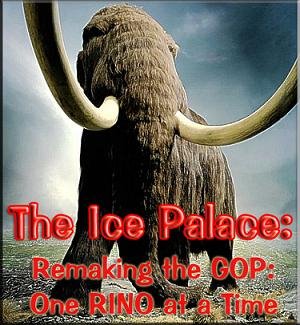Prager weighs in on Wetterling
Dennis Prager, a nationally-syndicated radio talk show host, was taken aback by Patty Wetterling's attempt to "cash in" on the Mark Foley scandal.
From Townhall.com:
What Mark Foley did was wrong. It was an abuse of his power and stature as congressman to attempt to take advantage of young, impressionable underling pages in his quest for self-gratification. It was a total abuse of his office, and of the trust placed in him by the voters. He resigned. Good riddance.I do not live in Minnesota.
Nor have I ever written a column about any congressional race.
But what Patty Wetterling, Democratic congressional candidate in
Minnesota's sixth district, just did is so wrong, so dishonest, so low even for the generally negative tone of political advertising, and so injurious to children, that I am breaking a lifelong silence on congressional races to beg Democrats and others in her district not to vote for her.This is not motivated by partisanship; I would even prefer a candidate to the left of her. Vote for the Green candidate if there is one; write in someone to the left of her. But to vote for Patty Wetterling is to harm political discourse and compromise our society's battle against child abuse.
Her recent television ad, referring to the Mark Foley scandal, states: "It shocks the conscience . . . congressional leaders have admitted covering up the predatory behavior of a congressman who used the Internet to molest children."
Even the Minneapolis Star-Tribune, among America's most left/liberal newspapers, which essentially endorses only Democrats, published an article under the headline, "Wetterling ad overstates facts: The TV spot by the Sixth District candidate is wrong in stating that members of Congress admitted to a coverup -- none has."
Read the rest
Wrong also is Patty Wetterling to opportunistically leech on to this issue, or, at the very least, as the STRIB put it,"overstate the facts," for her personal political gain. Prager's point in the article (again, please read the entire thing) was that Wetterling's use of the term "molest(ation)" in this matter completely dilutes the meaning of that term. As Prager stated,
To equate seductive e-mails to a 16-year-old -- or even the more explicit instant messages with an 18-year-old (which no Republican knew about) -- with "molesting children" -- only undermines our efforts to fight the enormous, almost unparalleled, evil of child molestation. What Patty Wetterling has deliberately done for political gain is to cheapen, redefine, and thereby reduce hatred of, child molestation.Like Cindy Sheehan, Wetterling has been given credibility as a spokesperson due to the loss of a child. The tragic, painful godawful loss of a child. But while both Wetterling and Sheehan can credibly and with great authority speak to the untold pain and suffering a parent feels when a child's death precedes her own, their experiences cannot nor should not translate into unquestioned unilateral authority relative to issues of policy, nor should their ideas or even their motivations on such matters be deemed infallible or unquestionable. Just as it would be folly to consider Cindy Sheehan's ramblings sacred and/or irrefutable with regard to Iraq and other foreign policy matters, it also is a public disservice to allow Patty Wetterling's wrong-minded and politically-motivated rhetoric to go unchallenged; and thinking voters should not be chided against questioning the motivation and/or reasoning behind her actions. The public good demands that policy be borne of rational thought unfettered by blind emotion.
Don't get me wrong. Wetterling (and for that matter Sheehan), has every First-Amendment right to publicly air her grief, along with demands for public policy based on her experiences. She has every right to run a campaign to try to convince voters that she is the best candidate for the MN 6th CD. But voters also have a First Amendment right, nay, an obligation, to question her assertions and motivations, given that she seeks an office whose function it is to represent their interests.



|